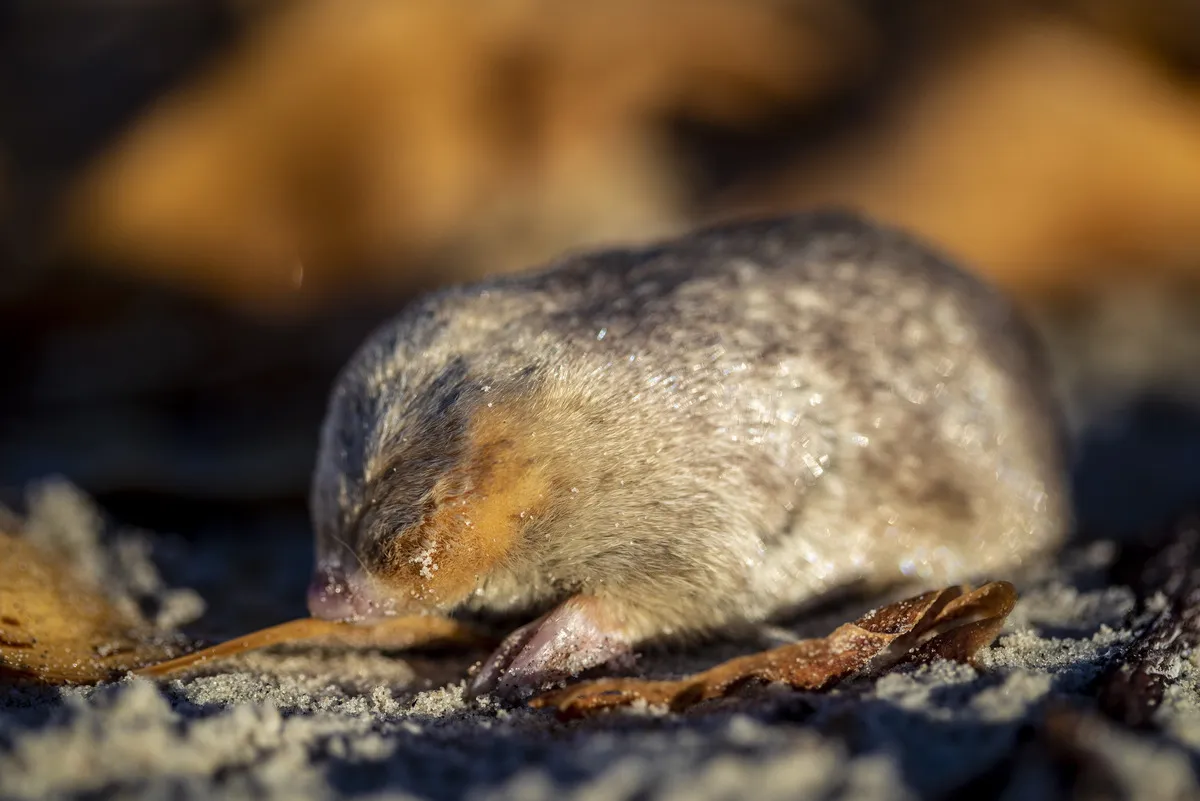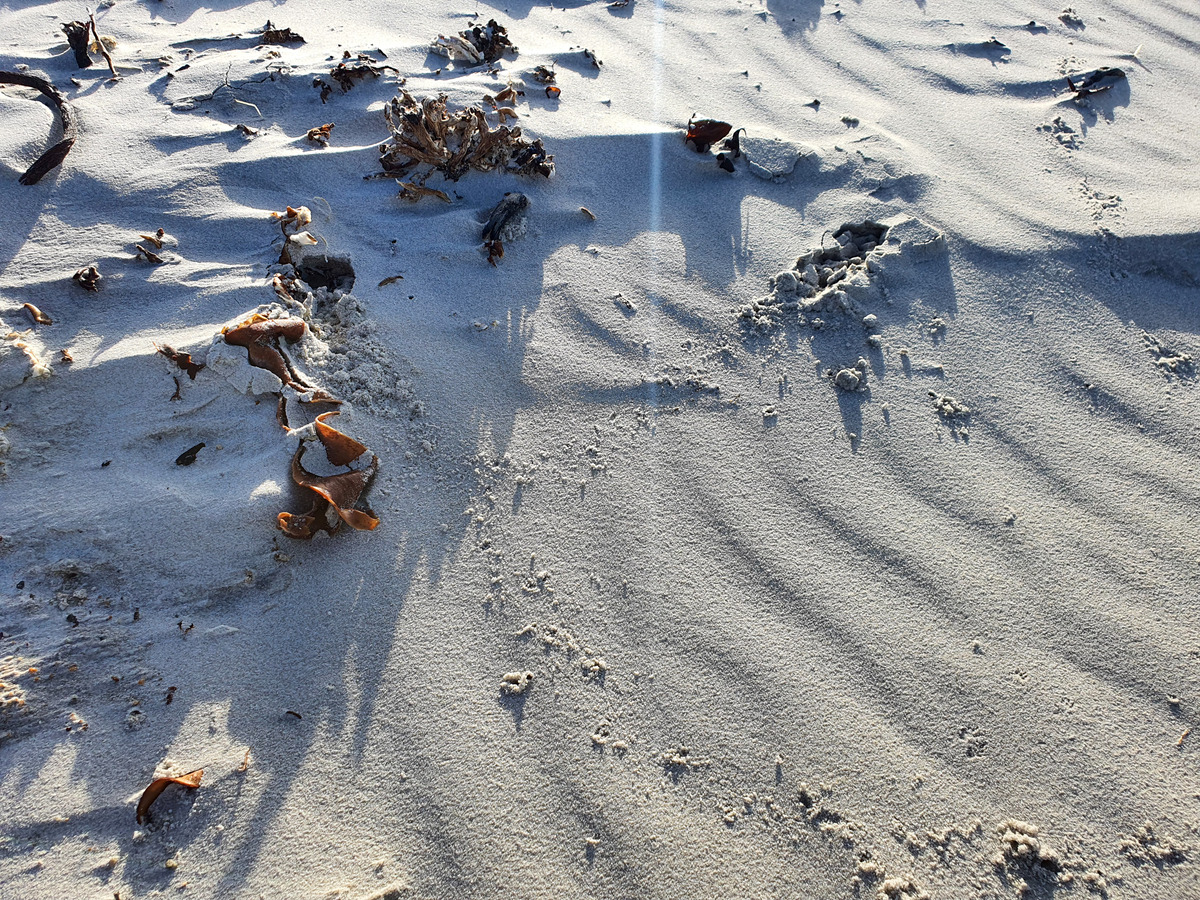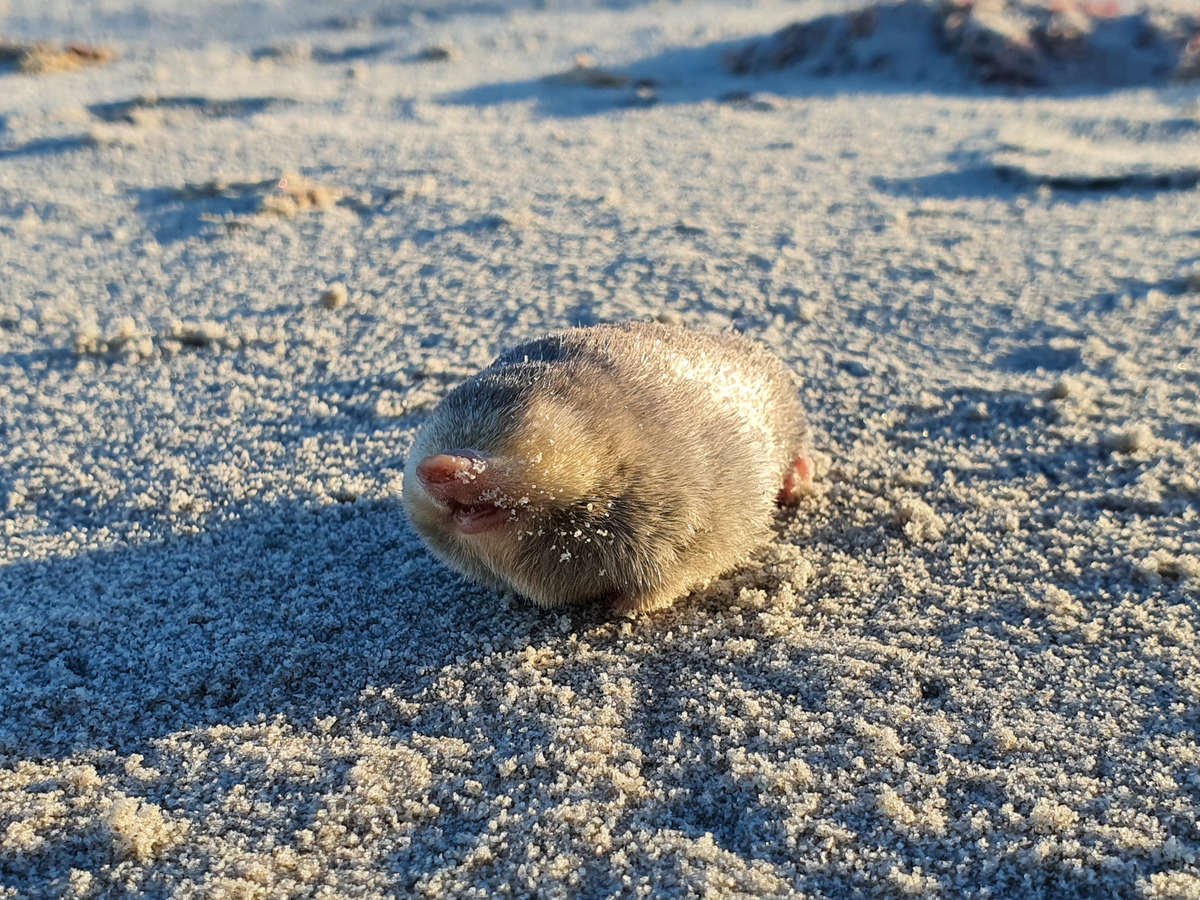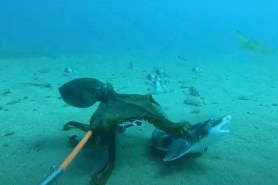

A long-lost species of mole has been sighted for the first time since 1936. A specially trained Border Collie named Jessie discovered the mole in sand dunes near the coastal town of Port Nolloth, in South Africa’s Northern Cape Province.
Videos by Outdoors
Experts and scientists from the Endangered Wildlife Trust (EWT) sent Jessie, who is a scent-detection dog, to search for traces of the rare golden mole. The species was believed to be critically endangered, if not extinct.

In a press release shared by the EWT, the search team explains more about the discovery. “Though many people doubted that De Winton’s golden mole was still out there, I had good faith that the species had not yet gone extinct,” said Cobus Theron, Senior Conservation manager for EWT and a member of the search team.
De Winton’s golden mole lives underground in the sand. It is thought that there are 20 other species of golden mole in other parts of sub-Saharan Africa, but the De Winton’s golden mole has a very small natural habitat, and has only been detected in the sands of Port Nolloth.

According to the wildlife conservation organization Re:Wild, golden moles owe their ‘golden’ name to “the pearl-like iridescence of their fur, a beautiful little byproduct of the oil their body secretes to make it easier to “swim” through sand,” they explain on their website.
The moles are insectivores, and they have extremely sensitive hearing. They can detect movements on the surface and their tunnels are not always visible from the surface, so they are very difficult to spot above ground.









